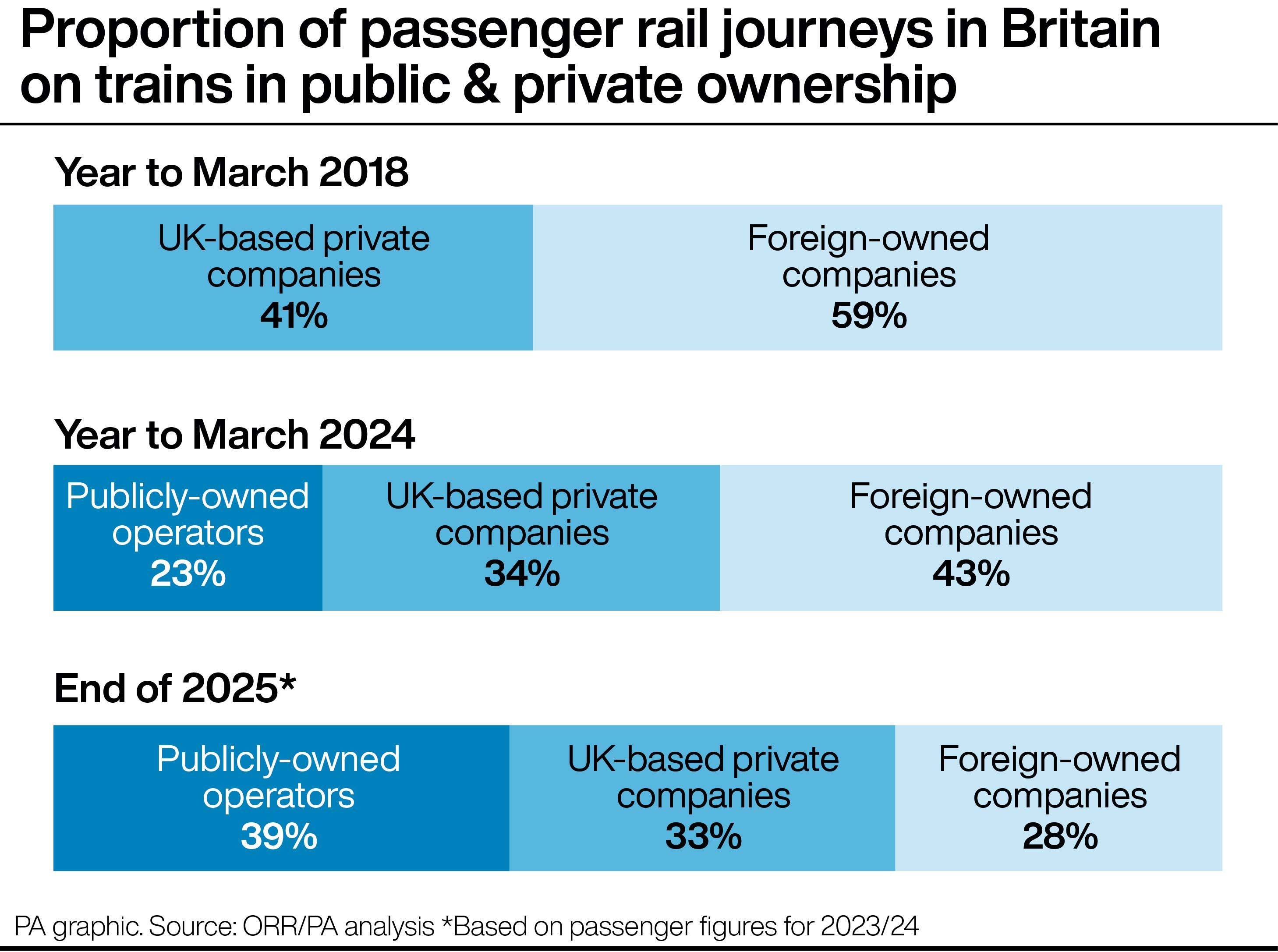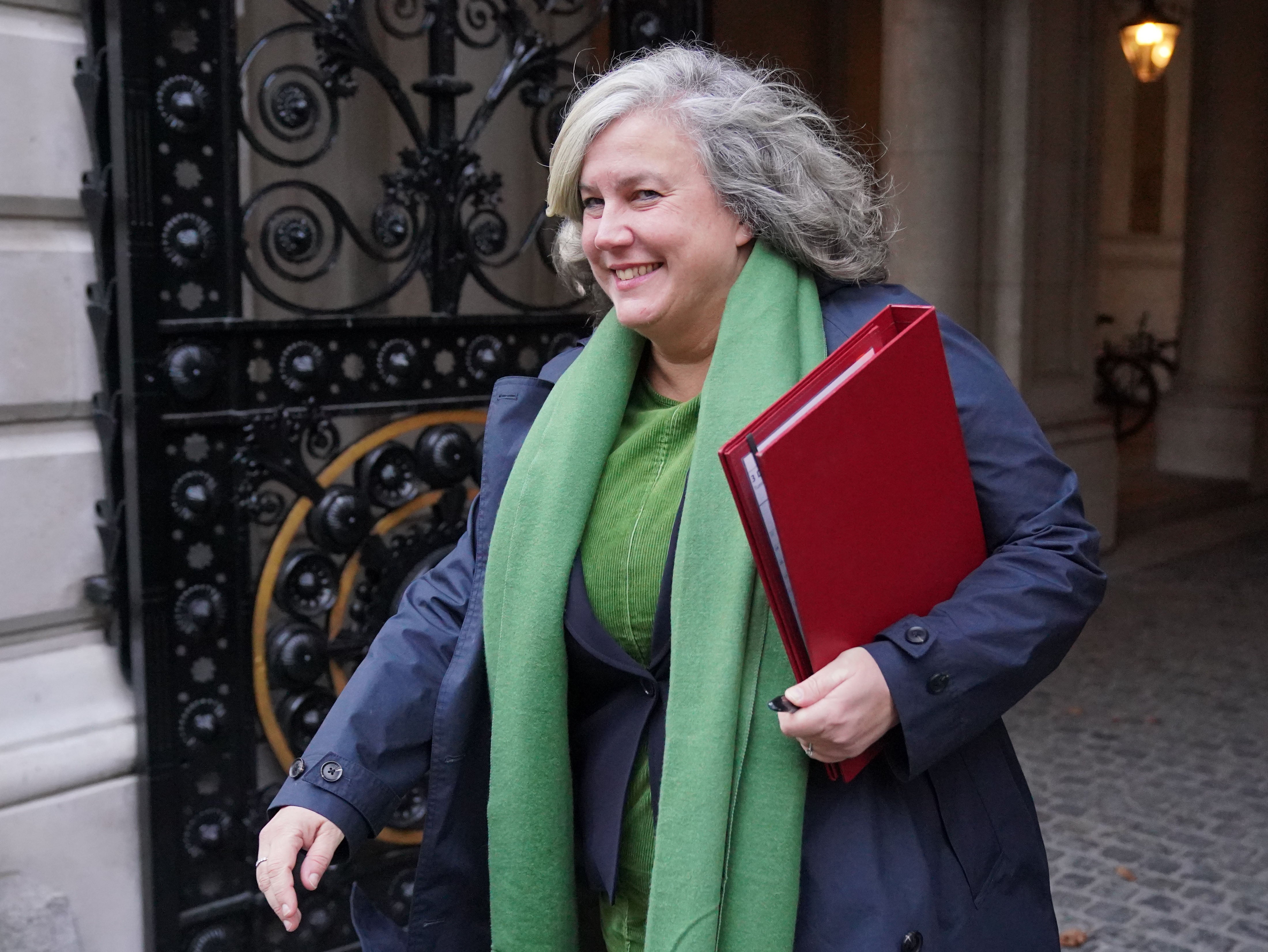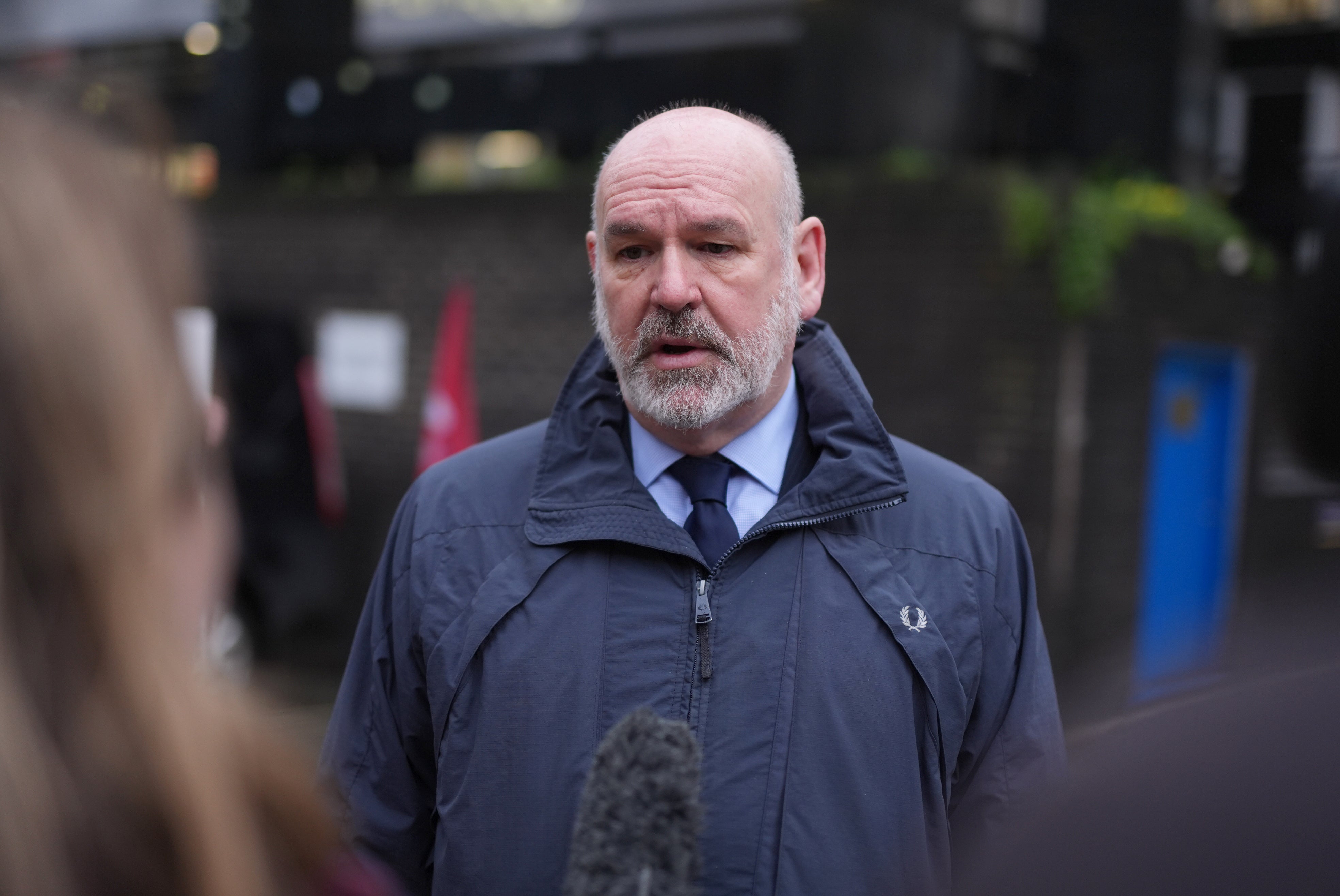
South Western Railway’s services will be the first to transfer into public ownership next year, followed by c2c and Greater Anglia, but the move is not expected to bring down train fares for passengers.
The transition of the three operators is part of Labour’s plans to bring contracts with existing rail operators into public ownership as they expire so taxpayers do not have to foot the bill to pay compensation to train firms.
Transport Secretary Heidi Alexander said she expects the move to reduce cancellations and late trains on those lines, but rail fares are still expected to go up.
She told BBC Breakfast: “The primary aim of this is to improve reliability and clamp down on the delays, the cancellation, the waste and the inefficiency that we’ve seen over the last 30 years.
“We’ve had private train operating companies running train services in this country over the last few decades, and it clearly hasn’t worked.”
She said bringing the operators into public ownership is a “first step” to a “more integrated and unified railway”, and pointed to the impact seen by bringing LNER and Southeastern into public ownership.

She said punctuality and cancellation rates had improved for LNER and Southeastern since the Department for Transport took over running them.
The Government said the transition to a publicly-owned railway will improve reliability and support its number one priority of boosting economic growth by encouraging more people to use the railway.
Rail fares are due to rise by 4.6% from March as set out in the Budget, a figure that the Transport Secretary repeated when asked if tickets will get cheaper with public ownership.
“The commercial realities of the railways are very challenging at the moment,” she said.
“Even under public ownership we’ve got to make sure that we’ve got enough money to provide the services that people want.
“Because otherwise you can enter into a little bit of a death spiral, really, if you start cutting services and people can’t get to where they want to get to when they want to get there – they’ll look for other options.”

The Government said the change will save up to £150 million a year in fees alone by ensuring money is spent on services rather than private shareholders.
Ms Alexander could not confirm how much the set-up cost would be but told LBC it would be a “fraction” of the management fees currently paid.
Asked why Avanti will not be among the first operators to be brought into public ownership, the Transport Secretary said the decision was based on when contracts expire.
South Western’s franchise contract is due to expire in May of next year, and c2c’s in July.
Greater Anglia has reached a stage in its contract that allows the Government to issue an expiry notice and give a date for the transition, which will take place in autumn 2025.

“We decided to proceed in that way because that means we don’t have to pay compensation to the train operating company,” the minister said.
She added that having a “mature” relationship with unions is necessary to provide efficient rail services.
“We’re going to have to work together to get to a really efficient railway that provides good value for money for both the farepayers and the taxpayers. We’re only going to do that if the Transport Secretary has a mature relationship with the trade unions,” Ms Alexander told Times Radio.
Rail unions welcomed the move, with Aslef general secretary Mick Whelan saying the decision to privatise British Rail in 1994 was “foolish, ideologically-driven, and doomed to fail”.
He added: “The privateers have taken hundreds of millions of pounds from our railways and successive Conservative governments have pursued a policy of managed decline which has sold taxpayers, passengers, and staff short.”
This is a significant step forward for passengers, rail workers, and those who want to see an efficient rail system run for the public good, rather than private profit
Rail, Maritime and Transport union general secretary Mick Lynch said: “This is a significant step forward for passengers, rail workers, and those who want to see an efficient rail system run for the public good, rather than private profit.
“Bringing infrastructure and passenger services under one employer in public ownership means proper investment in operations, harmonising conditions for staff, and prioritising the needs of passengers.”
Transport Salaried Staffs’ Association general secretary Maryam Eslamdoust said: “The move will mean better value for taxpayers and better services for rail passengers. It recognises that railways should be run as a public service rather than as a cash cow for shareholders.
“We welcome the Labour Government’s recognition of the expertise and experience that railway staff – our members – possess are crucial to the changes they want to see in the sector.”
We are concerned that the Government's plans are simply an ideological undertaking that does not put passengers first
But Gareth Bacon, the Conservative shadow transport secretary, said: “We are concerned that the Government’s plans are simply an ideological undertaking that does not put passengers first.
“Keir Starmer’s latest Transport Secretary has a worrying record of failure when it comes to delivering projects on time that improve passenger services. We will closely monitor the impact of these plans.”
Rail Partners, an industry group of passenger train and freight firms, said: “Simply changing who runs the trains won’t deliver more reliable and affordable services for passengers, reduce subsidy for taxpayers, or grow rail freight.
“The key to both improving performance and holding down fares is restoring the railway to financial sustainability.
“It is counter-intuitive to start removing private sector operators from the system, with their track record of delivering growth to reduce subsidy, when the question of what will replace them long-term won’t be answered until further rail legislation is introduced.”







